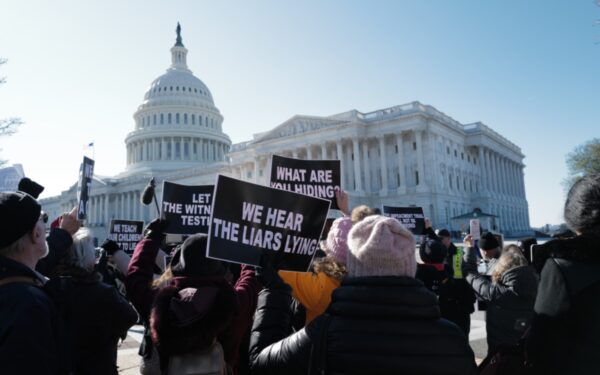“Watergate had become the center of the media’s universe,” Richard Nixon stewed in his memoirs, “and during the remaining year of my presidency the media tried to force everything else to revolve around it.”
Donald Trump might one day say the same about the investigation by Special Counsel Robert S. Mueller III, which shows no signs of slowing down.
Appointed last May, Mueller’s probe is looking into Russian election interference, including exploring possible links between Trump’s campaign team and the Russian state. The Special Counsel has already initiated criminal proceedings against nineteen individuals, including close confidants of the president.
Paul Manafort, Trump’s former campaign manager, has pleaded not guilty to counts of conspiracy against the United States and being an unregistered agent of a foreign principal, amongst other charges. Michael Flynn, who briefly served as Trump’s National Security Advisor, has plead guilty of making false statements, as has George Papadopolous, a former foreign policy advisor to Mr Trump both during and after the campaign.
The net may now be closing in on the president’s inner circle. This week, the chattering classes in D.C. buzzed with gossip that Ivanka Trump may be next. The president’s beloved daughter was with her father when he decided to fire the former FBI Director, James Comey. She was also present at Trump Tower during the campaign when some of Trump’s team spoke with a Russian lawyer and lobbyist.
Rudolph Giuliani, the erratic former mayor of New York City, who last week took on the dubious honour of becoming the newest in a long line of Trump lawyers, threatened that the American public would “turn” on Mueller if Mueller fixes his gaze on Ivanka (although Giuliani also said, remarkably that Jared Kushner, Ivanka’s husband, was “disposable).
All of this might be the long, tension-building prologue to a Mueller-Trump showdown. This week, the New York Times published a list of questions that the Special Counsel intends on asking the president, which demonstrate a focus on obstruction of justice. Possible lines of inquiry include: “What knowledge did you have of any outreach by your campaign, including by Paul Manafort, to Russia about potential assistance to the campaign?” and “Regarding the decision to fire Mr. Comey: When was it made? Why? Who played a role?”
Trump responded with a tweet declaring the investigation a “Witch Hunt” and saying that it was “disgraceful” that potential questions had been leaked.
The president’s nuclear option would be to fire Mueller, which he does not have the power to do directly but he could instruct his Attorney General, Jeff Sessions, to do it for him. This, however, might very well be out of the frying pan and into the fire. First, many senior legislators, including Republicans, have warned him against it. Jeff Flake, a Republican Senator from Arizona, has gone as far as saying that this would be grounds to impeach the president.
Second, there is no reason to think that bumping off Mueller would kill off the inquiry. Justice Department officials and FBI agents – two groups that Trump has attacked vociferously – would simply pick up the investigation where Mueller left off.
All of this leaves a besieged president in the Oval Office, with a dwindling number of loyal courtiers and even fewer options. The smart path is to sit the storm out, play technical with legal details – the type of stalling that Bill Clinton was a master of – and hope that Mueller’s bark is ultimately worse than his bite.
This, however, is not a president temperamentally inclined to hold steady. He would be wise to remember that Richard Nixon fired Watergate Special Counsel Archibald Cox in October 1973; ten months later, the president too was out of a job.
Benjamin Clayton is a Fellow at Harvard’s Kennedy School of Government.



